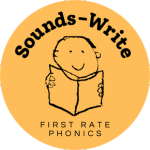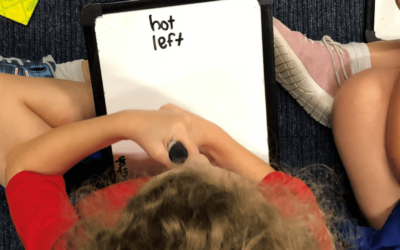So your class has just done the Phonics Screening Check (PSC)… great! Now what? After a brief pause to congratulate yourself on that milestone, you will be thinking about what comes next. What can we learn from the PSC to inform the next steps for those learners, and to inform your next steps as a teacher?
Whilst the timing of this blog was prompted by the recent PSC in the UK, the guidance will be useful to teachers using a Phonics Screening Check around the world.
PSC as a Formative Assessment Tool
The PSC might be an end of year assessment, but it should not be viewed as a summative assessment where we simply collect the scores and move on. The PSC should be a really useful formative assessment tool, with teachers being responsive to the data and adapting their teaching accordingly.
First, let’s think about those students who did not pass. You need to get these children into interventions now; don’t wait for Year 2! In an ideal world, these children will receive individual phonics interventions, targeting their own specific needs. More realistically, you will need to set up some small group interventions. Create groups based on similarities in phonemic skills, not code knowledge. To do this, carry out the Sounds-Write diagnostic tests, which can be found in the ‘downloads’ section of our website.
What about those children who just scraped through the test? Yes, they passed, great. But if they have just scraped through, then are you really confident that they are ready for Year 2? For these children, use their PSC as a formative assessment tool.
Ask yourself if the errors made are related to a lack of code knowledge or to difficulties with adjacent consonants. If errors were down to a lack of code knowledge, take note of the specific sound-spelling correspondences they struggled with, and bring those into review in your phonics sessions over the coming weeks.
If errors were related to adjacent consonants, plan for these students to have more practice with complex word structures. Use Lesson 1: Word Building with Units 9 and 10 words and Lesson 3: Sound Swap with nonsense words. We recommend using the Initial Code when practising with these word structures so that you are not placing an unreasonable demand on their cognitive load. Use your professional judgement to decide whether these targets can be achieved within the main class lesson, or whether a small group intervention is required.

PSC as a Reflective Teaching Tool
Looking at the performance of your whole class in the PSC, is there anything you can learn about your teaching and the teaching that took place in Reception? Look for patterns in the errors made: is there a particular SSC that was problematic, or a particular word structure? If so, take note of this and ensure you provide more opportunities to review that unit next year. Perhaps many students made errors with polysyllabic words, in which case ask yourself whether your teaching of polysyllabic words started early enough or was systematic enough. For our trained practitioners, we have guidance about how and when to start teaching polysyllabic words in the document ‘Introducing Polysyllabic Words’ which you can find in the downloads section* of our website.
*This resource is available for Sounds-Write practitioners only. Find out more about our Flagship Practitioner Course to get started.
Remember that success in the PSC is not down to the Year 1 teacher alone. What happens in the first year of school is of paramount importance and Reception teachers also need to reflect on the PSC results. If Year 1 children are struggling with adjacent consonants, then perhaps teaching and intervention in Reception was not rigorous enough. Reception teachers: if you have children who still cannot blend CVC words by the end of Unit 3, these are the children who are likely to struggle to pass the PSC.
We cannot stress enough the importance of identifying these children early in Reception and getting them into ‘keep up’ interventions, before they fall behind. For advice on how to support children who struggle to blend, read this blog post: Can’t Blend, Won’t Blend – a reprise. Year 2 teachers also need to reflect on the PSC results and liaise with the Year 1 teacher about the next steps for the class that they are about to inherit.

Your Year 1 class next year…
Thinking ahead to next year, plan to use our adapted PSC in September with your new Year 1 class. This adapted PSC is designed to monitor whether students entering Year 1 are proficient with the knowledge, skills and conceptual understanding they have covered in Reception. As this version of the check only includes words with sound-spelling correspondences from the Initial Code, students in Year 1 who have been taught Sounds-Write with fidelity in Reception should be able to read most of the words on this check. Prior to administering this adapted PSC, we recommend that you spend a couple of weeks at the start of Year 1 revisiting the Initial Code, making sure to cover the skills, code knowledge and conceptual understanding.
We have created two further adapted PSCs to be used before or after winter break – these checks and supporting documentation are available to our trained practitioners in the downloads section of the website. Remember that in Year 1, you can challenge and support students still struggling with adjacent consonants by including consonant clusters in words you use for word building and word reading. For example, instead of choosing the word ‘rain’ in Unit 1 of the Extended Code, you could use the word ‘train’ or ‘strain’. You can use your gestures and other scaffolding techniques to ensure success.
Train with us
Join the thousands of education professionals choosing the Sounds-Write programme. Receive quality-first training, support and resoures under one affordable annual membership.
You may also like...
Phonics Screening Check – Tips for a Strong Start to the Academic Year (Australia)
Whilst the timing of this blog was prompted by the start of the new academic year in Australia, the guidance will be useful to teachers using a Phonics Screening Check anywhere around the world. In fact, we shared a VERY similar post back in September for the start of...
Phonics Screening Check – Top Tips for a Strong Start to the Academic Year (UK)
Whilst the timing of this blog was prompted by the start of the new academic year in the UK, the guidance will be useful to teachers using a Phonics Screening Check anywhere around the world. Welcome to the start of another new academic year! Whilst the PSC (Phonics...
The Phonics Screening Check 2025 (England): Our Analysis
In this post, Sounds-Write's Founder and CEO John Walker examines the structure of the Phonics Screening Check 2025, highlights patterns and potential points of confusion, and offers guidance on how teachers can use this insight to better support early readers. You...




